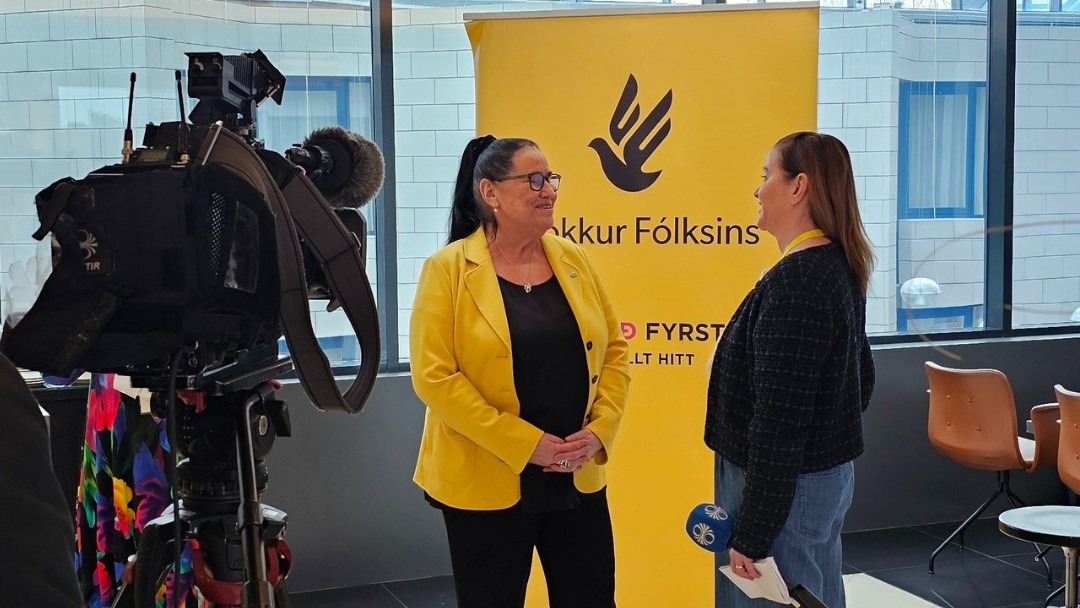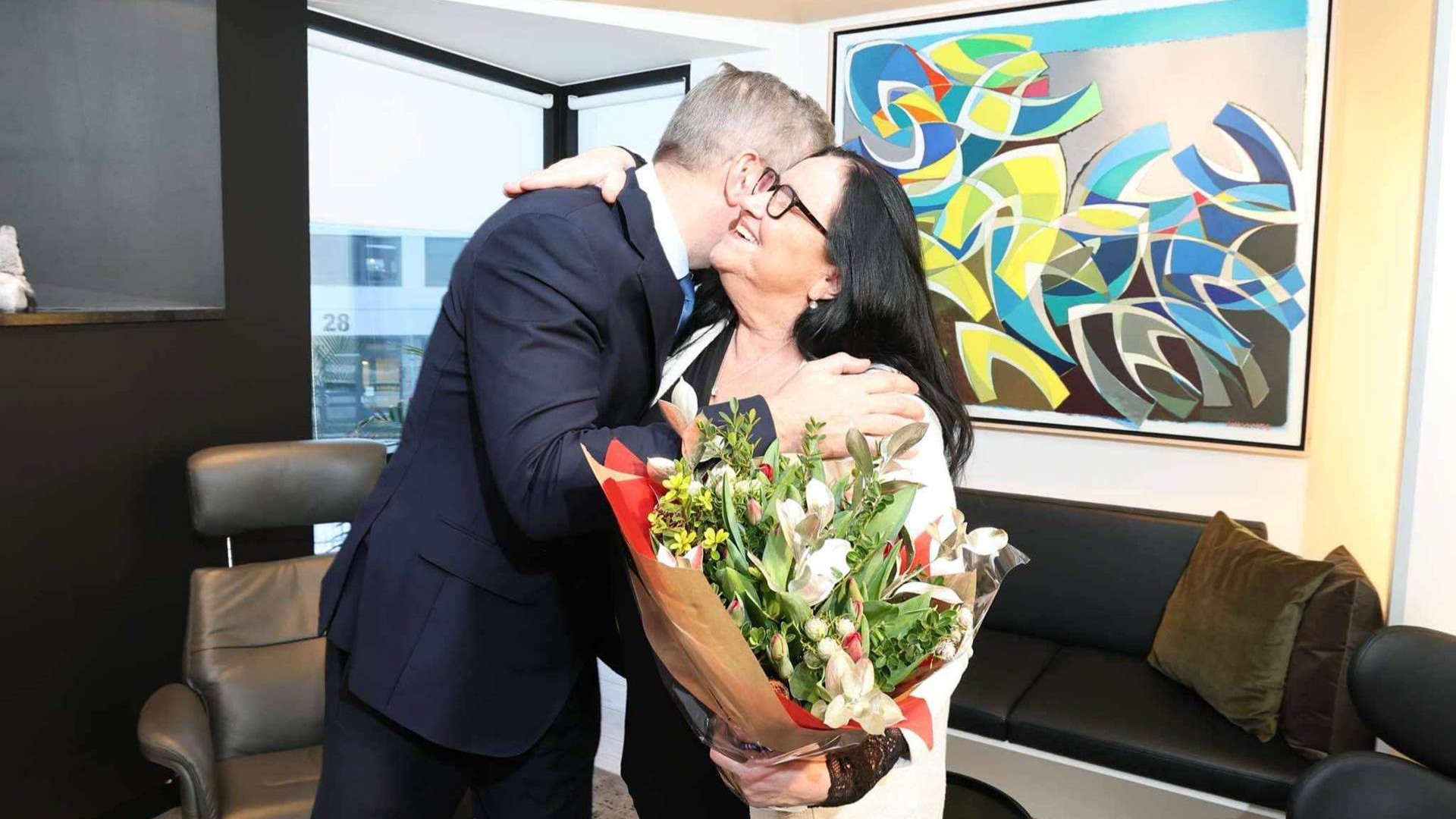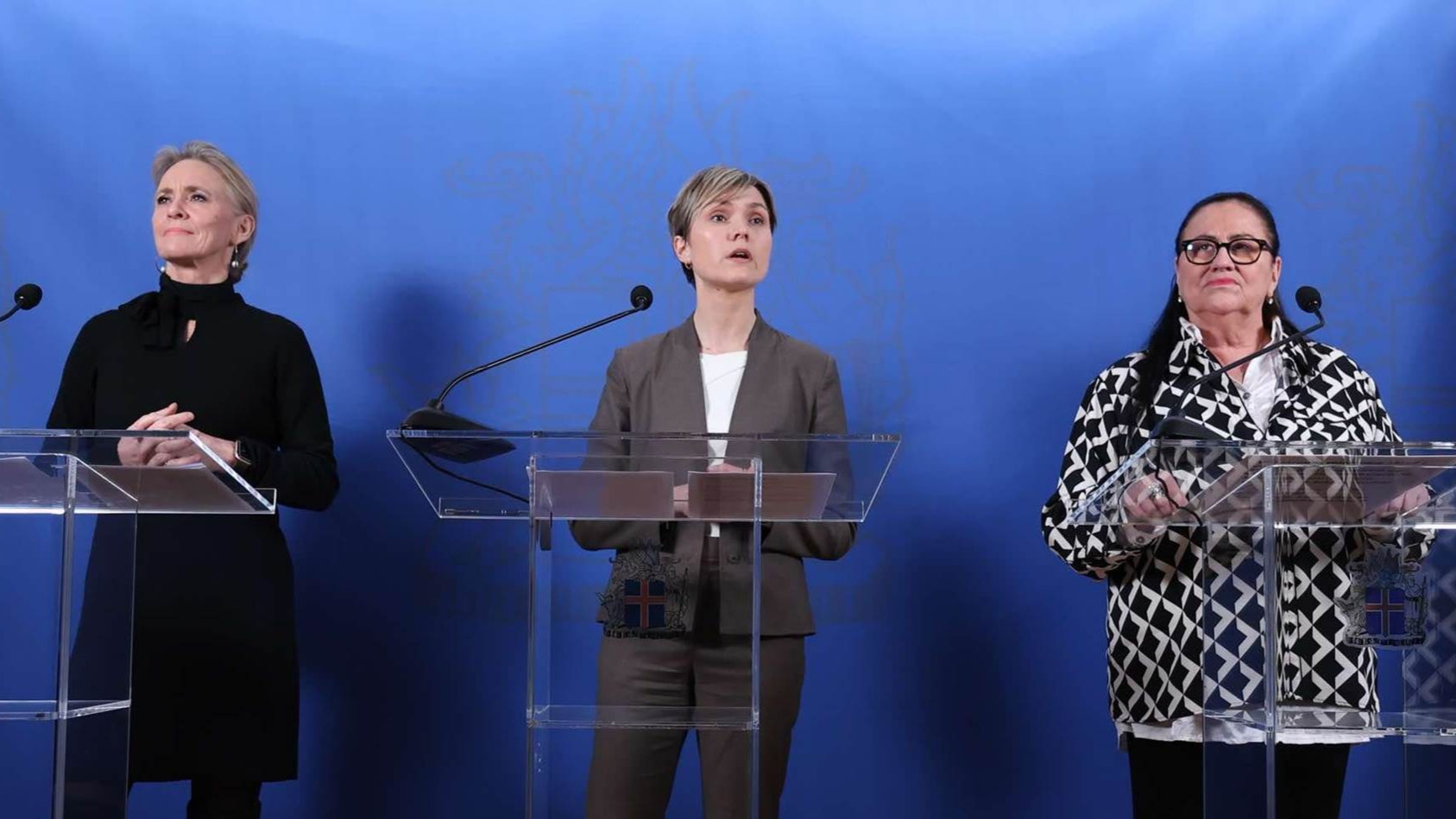Inga Sæland: From benefit recipient to government minister
In Iceland, as in many other countries, politicians have done various things before going into politics. It is common for lawyers, journalists and company leaders to enter parliament for various parties.
Inga Sæland, leader of the People’s Party, has a very unusual background for a politician. She has been on social benefits most of her life. She formed the party at her kitchen table in 2016 based on her experiences.
She says that her aim was to exterminate poverty in Iceland. Eight years after she first ran for parliament, she is now a senior member of the government as Minister of Social Affairs and Housing, also with responsibility for labour market issues.
That position puts her closer than ever to taking action on the issues she burns for. But her unrestrained rhetoric, not very typical of a politician, has drawn attention and even got her into trouble.
Most politicians, especially government ministers, want to promote their policies with a subtle resilience. That is not her way of doing things.

Inga Sæland gets a lot of attention, as a person and as a politician. Here she is being interviewed during one of the party's meetings. Photo: The People's Party
Already in her early years, Sæland faced difficult times. She got infected with chicken pox and meningitis when she was five months old and lost her eyesight. She was completely blind until she was two years old.
She now only has 10 per cent eyesight, which means she is legally blind. This was caused by her being given the wrong medication.
Sæland was raised in poverty in the northern town of Ólafsfjörður, and her political career is based on those poor living conditions.
She started her upper secondary studies in her late 30s, studied political science and finished a BA degree in law in 2016, the same year she first ran for parliament. By then, she was 57 years old.
Was known for singing
It was not politics that first made her known in Iceland, however – it was her singing. She took part in the Icelandic version of the TV show X Factor in 2006 and made it all the way to the finals.
15 years earlier, she had won a karaoke contest and was crowned national karaoke champion.
But back to politics. Sæland has said that the party was formed at her kitchen table in 2016. As an individual on full benefits, she had been used to refusing herself things others take for granted.
She had watched elderly citizens trying to live on benefits that were lower than the basic cost of living.
“I had accepted it, thinking I couldn’t do anything about it. But then I did not know about our poor children. It was when I knew about them that I decided to form the People's Party,” she said.
“Now the time has come for us to unite against poverty and corruption. We believe that our collective power is so great that we can get rid of the discrimination and the enormous injustice that we’ve had to live with for far too long.”
The party ran for parliament for the first time in 2016, and Sæland’s performance in election debates on television got a lot of attention.
It was not enough to get the party into parliament, however. Her party got 3.5 per cent of the votes, below the 5 per cent threshold.
Sæland then set her sights on running for Reykjavik city council in 2018, but that changed when the government coalition unexpectedly collapsed in September 2017 and an election was called only one year after the last one.

Inga Sæland got flowers from Bjarni Benediktsson when she took over the keys to the ministry. He was the Minister of Social Affairs and Labour before her. Photo: The Government of Iceland.
Sæland ran again, and this time things went better. The party got almost 7 per cent of the votes and secured four seats in parliament, including for Sæland herself.
She had a memorable performance in a TV debate the night before those elections when she burst into tears while describing how bad things were for poor people in Iceland.
“My vision is that disabled people will not feel like second-class citizens in our society. That our elderly can live here with dignity and retire without any worries.
“That 9.1 per cent of our children do not experience deprivation, that 25 per cent of our children do not live in unacceptable housing conditions,” she said with a lot of emotion. A pundit said she basically cried herself into parliament.
Two members kicked out of the party
The party took an active role in parliament, fighting for measures to combat poverty. But there were already signs of internal trouble.
In November 2018, the media unearthed a tape recording of a few parliamentarians from the Centre Party and two out of the People’s Party’s four representatives, having a go at some other politicians.
One of the Centre Party members called Sæland very bad names, without her party comrades defending her. Sæland fired the two from the party and they joined the Centre Party, leaving the party with only two parliamentarians.
But the party became more and more popular with voters, not least because of Sæland’s personality.
In the 2021 elections, it got 8.8 per cent of the votes and six seats. And in the November 2024 elections, the party secured a surprise 13.8 per cent and became the largest party in the south constituency.

Three senior women government ministers, from the left: Minister ) Minister for Foreign Affairs Þorgerður Katrín Gunnarsdóttir (Liberal Reform Party), Prime Minister Kristrún Frostadóttir (Social Democratic Alliance) and Minister of Social Affairs and Housing Inga Sæland (the People's Party). Photo: The Government of Iceland
This result put the People's Party in a key position in coalition talks. In the end, the party went into coalition with the Social Democrats and the Liberal Reform Party.
The latter also ran for the first time in 2016. When the coalition was introduced, Sæland got the honour of introducing the following reforms for those on the lowest income:
- Increased benefits for the disabled and elderly, linked to average salaries
- A higher income threshold before benefits are reduced
- Putting the UN Convention on the Rights of Persons with Disabilities (CRPD) into Icelandic law
- A special fund enabling disabled people to apply for grants to renovate their homes
- Enhanced support for disabled people's participation in the labour market
- A national initiative to improve elderly care, including more nursing homes
Issues in government
Her untraditional appearance has, however, created some difficulties in the early days and weeks of the coalition.
Shortly after the coalition was formed, the newspaper Morgunbladid wrote that the People’s Party had never been registered as a political party, and therefore had never fulfilled the conditions of getting financial support from the state, which it had received since it got into parliament.
Some from the opposition claimed that the party should repay the money it had received from the state. Inga Sæland responded by attacking Morgunbladid.
“The media representative of the country's wealthiest has been unleashed upon us with twists and half-truths. The party has been accused of theft and dishonesty and deliberate deception.
“The Independence Party and three other parties, which took a long time to figure out their registration issues, have, on the other hand, been left alone by the rhetoric,” Sæland said in a speech at the party’s general assembly, where changes were made to the party’s registration.
Before that, another of the party’s MPs suggested reviewing state support for the newspaper because of this and other stories it printed. This was heavily criticised and the party was accused of trying to curb press freedom.
Another story about Sæland emerged, explaining how she phoned the head teacher of her grandchild’s upper secondary school because their shoes had been lost there. Sæland expressed her disappointment with the shoes not being found and reminded the head teacher of her influence in society.
The shoes were found in the end – not because of Sæland’s pressure – and she apologised for the phone call.
All this shows how Inga Sæland’s political career has been far from conventional and full of turmoil. But she has stuck to her principles and that has secured her a ministerial position.
Whether the early challenges she has faced as a minister will strengthen her efforts to bring about the change she has long fought for remains to be seen.
- Party leader
-
Inga Sæland founded the People's Party in Iceland. Today, she is the party leader and a government minister.
 Follow us on Facebook
Follow us on Facebook
